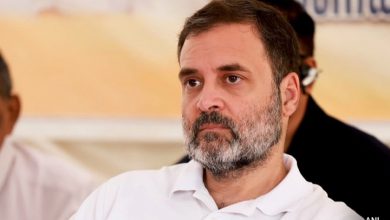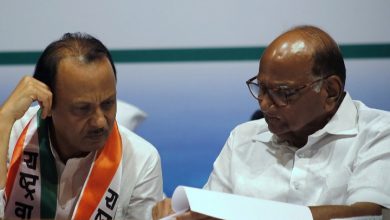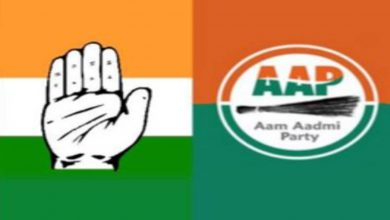Ayodhya row: Mosque can be built at a distance from disputed site, Shia board tells Supreme Court

New Delhi: Offering a solution to the Ram temple-Babri Masjid dispute, the Shia central waqf board of Uttar Pradesh on Wednesday told the Supreme Court a mosque could be built in a Muslim-dominated area at a “reasonable distance” from the disputed site in Ayodhya.
With this submission, the Shia board becomes the first Muslim organisation to come out in support of the demand of various Hindu bodies on the Ayodhya issue. The Hindu bodies while demanding that Ram temple be allowed to be constructed at the disputed site have suggested that a mosque could be built at a distance away from this area.
The affidavit, filed by Syed Waseem Rizvi, Chairman of Uttar Pradesh Shia Central Waqf Board, disputed the claim of Sunni waqf board, saying the Babri Masjid site was its property and only it was entitled to hold negotiations for an amicable settlement of the dispute.
Favouring construction of the mosque at a “reasonable distance” from the site, it said, “Closeness of places of worship i.e Masjid and Mandir of the two litigating denominations, should be avoided in as much as both denominations using loud speakers tend to disturb religious performances of each other, often leading to conflicts bringing acrimony in the two factions.
“Answering respondent (Shia Board) is also of the view that, to bring quietus, masjid can be located in a Muslim- dominated area at a reasonable distance from the most revered place of birth of Maryada Purshottam Sri Ram.”
The affidavit assumes significance as it has been filed within few days of the apex court agreeing to fast track the hearing on a batch of appeals challenging the Allahabad High Court verdict on the land dispute in the case.
The Shia Board, in its 30-page affidavit, said that the Sunni Central Waqf Board was under the dominant control of Sunni “hardliners, fanatics and non-believers in peaceful co-existence who have absolutely no stake in the present case.”
Assailing the stand of the Sunni Central Waqf Board, it said, “…since Babri Masjid was a Shia waqf board property, Uttar Pradesh Shia Central Waqf Board alone is entitled to negotiate and arrive at a peaceful settlement with other remaining stakeholders.” The Shia body has also sought setting up of a committee for exploring an amicable resolution of the vexatious issue.
It sought setting up of the committee headed by a retired Supreme Court judge, two retired judges of Allahabad High Court, Uttar Pradesh chief minister or his nominee and a nominee from the office of the prime minister.
It said that Shia central waqf board’s nominee and a representative each from Nirmohi Akhara and Hindu sect shall make suggestions and proposals for amicable settlement before the committee.
The Shia board, one of the parties in the pending appeals in the apex court, referred to the Allahabad High Court judgement and said that it has been held that “Muslims” should get not less that one-third of the disputed area.
“By saying ‘Muslims’ the high court obviously meant ‘Shias’ since the high court rejected the claim of the Sunni Board that Babri Masjid was a Sunni waqf. The high court having held that Babri Masjid is a waqf, rejected the claim of Sunni Board that it was Sunni waqf claimed on the basis of notification dated 16 February, 1944 by the Chief Commissioner of waqfs under the Muslim Waqfs Act, 1936.
“The high court held the notification as ‘illegal’ since it was issued in violation of the provisions of the Act, 1936 without issuing notice to the interested persons, a statutory requirement. Thus, the claim of Sunni Board stood negated that it was a Sunni Waqf. Needless to say that a waqf has to be either Shia or Sunni waqf and not a waqf alone.
“It is always known by its creator i.e wakif or waqif being Shia or Sunni,” the affidavit said.
Referring to 1,620 inscriptions, which were found on the disputed site, the Shia Board said that it proved beyond doubt that Babri Masjid was built by Mir Baqi, a Shia, who created a Shia Waqf.
“The said masjid being a Shia waqf and its last mutawalli (manager of the waqf-property) (1949) was admittedly a Shia,” the affidavit said.
Recently, a three-judge bench comprising Justices Dipak Misra, Ashok Bhushan and SA Nazeer has been constituted by Chief Justice JS Khehar to hear a batch of petitions challenging the Allahabad High Court verdict in the Ayodhya land dispute case from 11 August.
The Lucknow bench of the Allahabad High Court had in 2010 ruled a three-way division of the disputed 2.77 acres area at the Ram Janambhoomi-Babri masjid site in Ayodhya.
The three-judge bench of the high court, by a 2:1 majority, had said the land be partitioned equally among three parties — the Sunni Waqf Board, the Nirmohi Akhara and Ram Lalla.
On 21 July, a bench headed by Chief Justice JS Khehar had said that it would soon take a decision to list the matter for early hearing.
The court’s remark had come on a plea of BJP leader Subramanian Swamy who sought urgent listing and hearing of the matter. Swamy had said the main appeals against the Allahabad High Court order are pending for the last seven years in the apex court and these required urgent hearing.
He had also said that a separate petition had earlier been filed by him seeking enforcement of his right to worship without much hassle at the site. The BJP leader had told the court that he has been allowed by the apex court to intervene in the matter and is seeking expeditious disposal of the cases.







